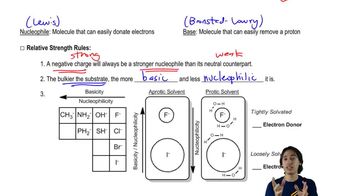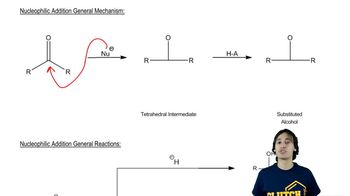Identify the most stable conjugate base in each pair. Tell which structural features you analyzed and why you weighted them as you did in picking one answer.
(c)

 Verified step by step guidance
Verified step by step guidance Verified video answer for a similar problem:
Verified video answer for a similar problem:



 3:15m
3:15mMaster Why we need factors affecting acidity and when to use them. with a bite sized video explanation from Johnny
Start learning